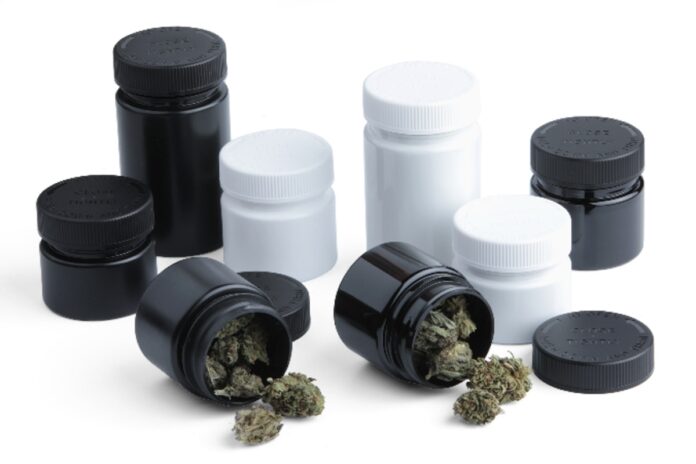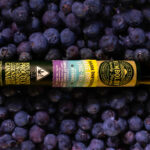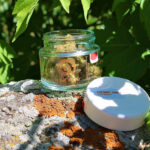For businesses across the world, environmental sustainability has become an important component for long-term success. Businesses also are finding sustainability increasingly important to consumers. In fact, a retail and sustainability report from CGS (a global provider of business applications, enterprise learning, and outsourcing services) revealed two-thirds of survey respondents consider sustainability when making purchases. Organizations that can implement and follow sustainable practices likely have a competitive advantage.
Packaging is created to protect the product it contains, but it also serves other functions like listing required regulatory information and ingredients and showcasing a company’s brand identity. If your company is committed to sustainability, the packaging you choose can reinforce that commitment with your customers.
The cannabis industry’s monumental growth has encouraged many consumers and businesses to pay close attention to products’ environmental impact. In general, single-use product packaging composes a major portion of municipal solid waste. For cannabis companies seeking to improve overall sustainability, evaluating their product packaging can represent a significant opportunity to become more environmentally friendly.
However, cannabis companies must abide by regulations that can make sustainability a challenge. For example, some child-resistant packaging materials may not be environmentally friendly. Fortunately, there are sustainable materials and manufacturing processes that can reduce waste and energy consumption. If you are using or thinking about using plastic bottles and closures for your cannabis products, options exist that can help conserve natural resources and improve your carbon footprint.
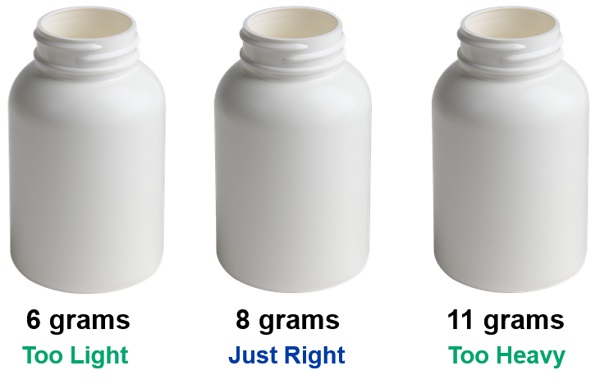
For conserving raw materials, recycling is the answer. Post-consumer recycled (PCR) polyethylene terephthalate (PET) and PCR high-density polyethylene high-density polyethylene (HDPE) are popular planet-friendly options. Both resins help reduce greenhouse gas emissions that are damaging Earth. In a circular economy, making new bottles and closures from PCR resin removes plastic from the environment by converting plastic consumers discard back into reusable resin.
Plastic bottles made from these resins also are fully recyclable in the current recycling stream. PCR resins are excellent choices because they help keep plastic waste to a minimum. Both PCR PET and PCR HDPE retain properties, performance, and application versatility similar to their traditional counterparts, are FDA-approved, and pass ASTM and USP testing.
Another alternative is bioresin HDPE. Traditionally, polyethylene produced from fossil fuels has been used to manufacture HDPE bottles and closures. However, polyethylene produced from ethanol made from sustainable sources like sugarcane (bioresin) is becoming more common for several reasons:
- Unlike fossil fuel resources which are finite, sustainable resources like sugarcane are renewable.
- Production of ethanol-based polyethylene contributes to the reduction of greenhouse gas emissions when compared to conventional polyethylene made from fossil fuels.
- Polyethylene made from sugarcane can be recycled.
Although the supply of bioresin HDPE is limited, future developments may make this option viable for all users within a few years.
Alternative manufacturing processes also can help reduce environmental waste and reduce a product’s overall carbon footprint. Consider these options:
Reduce source material (right-weighting)
When considering what type and style of bottle to use for a cannabis product, keep in mind the same bottle may be manufactured with less plastic. Why use a bottle that consumes more plastic than required when a more appropriate option may be available?
The converse also is true. A bottle with too little plastic may be too thin to hold up to automated filling lines or may deform after being filled. Using a right-weighted bottle can help avoid problems on filling lines, conserve money, and prevent production issues. In addition, right-weighting also helps limit the natural resources used in production.
Eliminate flame treatment
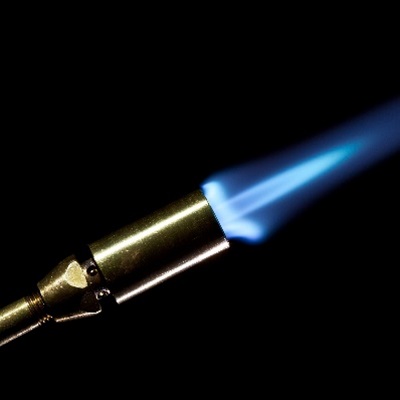
Eliminating the flame treatment process in plastic bottle manufacturing can reduce a product’s carbon footprint. Historically, flaming ensured water-based adhesive labels and silk screening would adhere properly to HDPE, low-density polyethylene, and polypropylene bottles. Today, flaming is not always necessary, depending on the label type to be applied; consult your label provider to be sure.
Opting out of the flaming process conserves natural gas. For example, for every 5 million bottles not flamed, approximately three metric tons of carbon dioxide are eliminated. Ask your packaging manufacturer if eliminating flaming is an option.
Convert to plastic pallets
If you are purchasing bottles in large quantities and your supplier ships on wooden pallets, consider converting to plastic pallets. Reusable plastic pallets last longer than their wooden counterparts, eliminate pallet moisture, and improve safety in handling. They also reduce the use of raw materials in the manufacturing process (natural gas, metal, forests, etc.), aiding in efforts to reach zero net deforestation. Reusable plastic pallets also provide savings over the long term.
If sustainability is a top priority for your cannabis business and customers, it is important to determine whether your plastic packaging partner offers solutions to help impact the environment for the better. Also prudent: Partnering with a company that is concerned about its own impact on the planet. Is the company committed to sustainability? Does it eliminate manufacturing processes that negatively affect its carbon footprint? What products and services does the partner provide to help achieve your sustainability goals?
Using environmentally friendly plastic bottles and closures for cannabis products is an important step toward helping ensure a better future for the planet. While the primary function of any packaging is to contain, protect, and identify the products inside, consumers see the container as a reflection of your company’s values. In a competitive market, environmentally conscious packaging can improve customers’ impression of your brand, increase consumer confidence, and help grow your bottom line.

Danielle Antos is the marketing project manager for Drug Plastics & Glass Co. Inc. Located in Boyertown, Pennsylvania, Drug Plastics is a leading manufacturer of HDPE bottles, PET bottles, and plastic closures for medicinal, wellness, and lifestyle products. The company is committed to making people’s lives better by producing packaging that is functional, easy to use, and safe.







